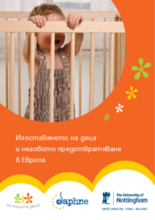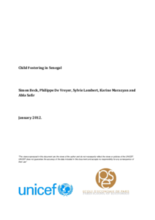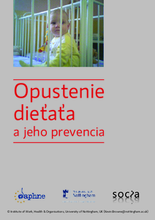Displaying 1381 - 1390 of 1796
This document is a Bulgarian language summary brochure of the Manual of Good Practice titled ‘Child Abandonment and its Prevention in Europe,’ specific to child abandonment in Bulgaria.
Using a nationally representative household survey conducted in 2006-2007 in Senegal, this study sheds light on the common practice of fostering (confiage) by examining the characteristics of households and individuals involved in fostering, the motivation for fostering and its impact on host households, sending households, and the foster child, with a focus on education, employment and marriage outcomes.
This document is a Slovakian language summary brochure of the Manual of Best Practice titled ‘Child Abandonment and its Prevention in Europe,’ specific to child abandonment in Slovakia.
This monograph contains nine chapters that review and discuss the empirical literature on the development of children who have been deprived of their permanent parents
Utilizing the United Nations Convention on the Rights of the Child and the Guidelines for the Alternative Care of Children, this paper from Monographs of the Society for Research in Child Development Volume 76, Issue 4 examines critical components and current characteristics of alternative care for children in low‐resource countries.
This monograph reviews literature pertaining to children without permanent parents.
This article is based on interviews with 19 child care policy experts including policy advocates, researchers, and funders.
This Law is relating to the rights and the protection of the child in Rwanda.
The study explores the post-care experiences of young Jordanian care leavers. Material struggles were similar to peers internationally. The distinct difference for Arab care leavers was the cultural influence. Patriarchy, family life and collectivism impact the care leavers' experiences. A cultural dimension increases understanding of leaving-care.




